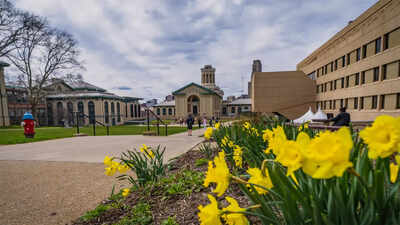62% drop in new graduate enrolments: How Illinois universities are reeling from the loss of international students

For decades, Illinois’ universities have been magnets for international students, drawing talent from China, India, South Korea, and beyond. These students not only enrich academic life but also play a pivotal role in the financial sustainability of institutions. Yet this autumn, early data indicate a sharp decline in new international enrolments, particularly at graduate levels, revealing the fragility of a system increasingly reliant on global tuition revenue.
DePaul University : A community feeling the strain
DePaul University in Lincoln Park has been among the hardest hit. According to a recent message from President Robert Manuel, the university welcomed approximately 750 fewer international students this year, marking a 62% drop in new graduate enrolments compared to last year, the Chicago Sun Times reports.“Significant shifts in the higher education landscape continue to create a palpable sense of fear and anxiety in our community,” Manuel said. He cited concerns ranging from the safety of students to safeguarding academic freedom and the financial uncertainties driven by changes in federal funding and visa processing. In response, the university is exploring immediate cost-cutting measures, including potential reductions in executive pay, staff hiring freezes, and a slowdown in faculty appointments, according to the Chicago Sun Times.
Public universities feeling the impact
Public institutions are not immune. The University of Illinois Chicago, the city’s largest public university, reported a 4.9% decline in international student enrolment, largely among graduate students. At the University of Illinois Urbana-Champaign, total international enrolment stands at 13,268 this autumn, with 55% in professional and graduate programmes. Although undergraduate numbers increased, graduate student enrolment declined, the Chicago Sun Times reports.
Revenue, research, and the role of international students
The stakes extend beyond classroom diversity. Illinois’ universities have increasingly relied on international students to offset declining taxpayer funding and shrinking federal grants. At UIUC, an international undergraduate studying engineering faces a total cost of nearly $70,000 for tuition, accommodation, and fees, compared with just over $42,000 for an in-state student. According to NAFSA: Association of International Education, international students contributed $2.4 billion to the state economy in 2023-2024.The decline in enrolments threatens both institutional revenue and research collaboration. “Much of the work that academics and particularly scientists do is international,” said Northwestern University Professor Leslie Harris. “These are not problems that respect national boundaries, and it is necessary for us to share research across borders and to share students,” the Chicago Sun Times reports.
Federal policy and student decisions
Several federal policies have contributed to this downturn. Slowed student visa appointments, proposed four-year visa limits, and social media screenings have added uncertainty. In the spring, the abrupt revocation of thousands of student visas, later reversed, created further concern. Recently, the administration offered universities priority funding if they agreed to cap international student enrolment at 15%.
A wider national challenge
Across the United States, nonprofit projections anticipate a 30% to 40% decline in new international students this year, leading to an estimated 15% drop in overall higher education enrolment, $7 billion in lost revenue, and more than 60,000 fewer jobs, according to the Chicago Sun Times. Illinois, long a hub for global talent, now finds itself confronting the financial and academic consequences of these shifts.As universities adapt to a changing landscape, the lesson is clear: international students are more than just a source of tuition revenue. They are integral to research, innovation, and the very character of American higher education. The current decline underscores how fragile this ecosystem can be when policy and politics intersect with academic ambition.






